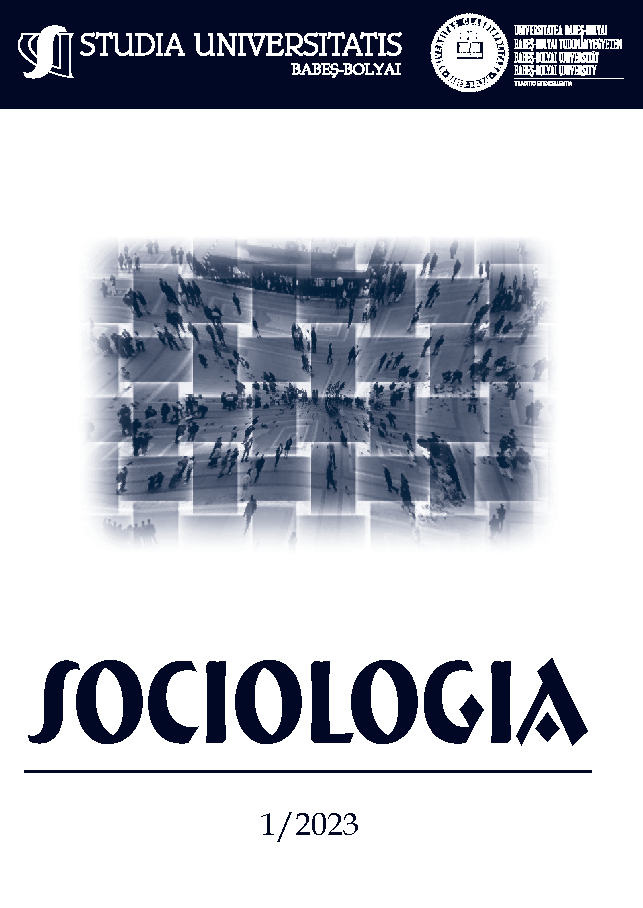Science and Social Knowledge or What We Do Not Know about What We Believe We Know
DOI:
https://doi.org/10.2478/subbs-2023-0001Keywords:
knowledge, truth, ideology, social scienceAbstract
What is knowledge and how can we analyse it from within social sciences as social knowledge? Our socially driven intuition tells us that knowledge is a special relation that humans have with their surrounding world. Its specificity lies primarily in the fact that it implies a direct interaction with the environment. Another important and interesting characteristic of knowledge is its tendency to replace interactions with reality with interactions between pieces of knowledge produced about that specific reality. Connected to this, regarding the issue of truth, paraphrasing both Einstein and Smith, this article argues that ‘an invisible hand’ of the realities of social phenomena makes it so, that the accepted truths of a certain society are those and only those that are functional for the survival and reproduction of that society. And for this to happen it is a must that the elite designated with the production and the legitimation of ‘the truths’ exists and produces those ‘truths’ that support the ‘general interest’ of that respective society. Most importantly is to understand that the consistency of the legitimated truths with the dominant values of the society imbedded in its social order is far more important that their consistency with the empirical observations of the reality.References
Baggott, J., 2013, “A Fairwell to Reality. How Fairytale Physics Betrays the Search for Scientific Truth”, Constable Press, London.
Einstein, A., 1995, “Ideas and Opinions”, Three Rivers Press, New York, Kindle Edition.
Favaro, A. (ed), 1968, “Da Galileo Galilei, Opere, vol. Giunti-Barbera”, Firenze, vol. XII, pp. 171-172, Electronic version: https://disf.org/bellarmino-foscarini.
Hawking, S., 2003, “The Illustrated Theory of Everything. The Origin and Fate of the Universe”, Phoenix Press.
Hidalgo, Cesar. 2015, Why Information Grows: The Evolution of Order, from Atoms to Economies. Basic Books. Kindle Edition, Location 58.
Hossenfelder, S., 2018, “Lost in Math. How Beauty Leads Physics Astray”, Basic Books, New York.
Ioannidis, J.P.A., 2005, “Why Most Published Research Findings are False”, în Plos Med, August 30, https://doi.org/10.1371%2Fjournal.pmed.0020124.
Kuhn, T., 1962, “The Structure of Scientific Revolution”, University of Chicago Press, Chicago.
Mackay, S.C., 2006, “The Hammer of Witches. A Complete Translation of Maleus Maleficarum”, Cambridge University Press.
Hunter De Rensis, 2019, “Coup in Caracas?”, in The National Interest, April 30.
Tocquevile, A. de, 1835, “De la Democratie en Amerique, vol. 1, Deuxieme Partie”, Gallimard Press, Paris. Electronic version : http://www.uqac.uquebec.ca/zone30/Classiques_des_sciences_sociales/index.html.
Wallerstein, I, 2004, “The Uncertainties of Knowledge,” Temple University Press, Philadelphia, Kindle Edition, location 1614.
Weinberg, S., 1985, “Primele trei minute ale universului. Un punct de vedere modern asupra originii universului”, Editura Politică, București.
Downloads
Published
How to Cite
Issue
Section
License
Copyright (c) 2023 Studia Universitatis Babeș-Bolyai Sociologia

This work is licensed under a Creative Commons Attribution-NonCommercial-NoDerivatives 4.0 International License.



